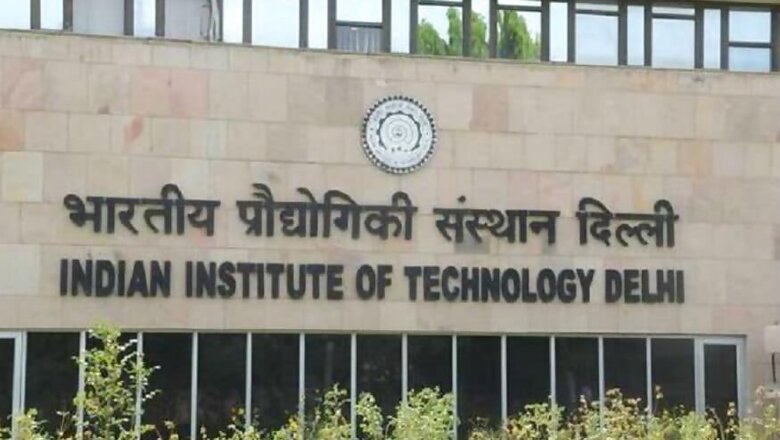
views
New Delhi: The reputation of the country’s higher education system hit a new low, say many experts, when no Indian institution found a place in the top 300 positions of a prestigious international league table for the first time in years.
However, the director of the Indian Institute of Technology (IIT) Delhi, V Ramgopal Rao, has countered this view in a Facebook post, saying if the fundamentals of a university are strong, the rankings will follow.
The Indian institute with the best position in the latest Times Higher Education (THE) World University Rankings is IIT Ropar. Joining it is the Indian Institute of Science (IISc) Bengaluru, with both placed among the top 301-350 universities of the world. After the first 200, the list puts institutes into rank groups rather than individual positions.
The University of Oxford has held on to its top spot for the fourth year, while the California Institute of Technology has risen from fifth to second. The University of Cambridge, Stanford University and the Massachusetts Institute of Technology slip one place to third, fourth and fifth, respectively.
This is being seen as India’s poorest showing since 2012, though 56 institutes have made it to the list this time instead of 49 last year. Rao, however, says the Times rankings do not give the complete picture.
The IITs in Delhi, Mumbai and Kharagpur have been placed in the 401-500 ranking bracket, implying that the branches in Delhi and Kharagpur have improved by 100 ranks from the previous year.
‘Research impact is key’
Rao has mentioned four reasons why he wouldn’t go by these rankings. He writes:
1. In three of the ranking parameters such as international students, international faculty and faculty-student ratio, our institutions score close to zero points. To be ranked globally, we need to internationalise our campuses.
2. Contrary to popular perception, on Research Impact scores, our top institutions indeed score very well. For example, IIT Delhi was ranked 39 in the world in 2018 on Research Impact score (total citations divided by the number of faculty) in QS ranking. We recruited a lot more faculty in the last two years, and it has gone to 50s now. Once the new faculty become productive, it should rise again.
If you rank world universities on just the "Research Impact" scores, many of our top Indian institutions (read IITs and IISc) will be in the top 100.
3. We don't score well on perception based parameters on a global scale. Again because of the inward looking nature of our institutions and cultural issues. This is also changing now.
4. 50% of scores used for ranking are based on perception. QS is at least a lot more transparent with respect to how they generate perception based scores. THE is a black box. Many of us have stopped caring about THE rankings.
What makes an institution great?
“The best Indian institutions are generally characterised by relatively strong scores for teaching environment and industry income, but perform poorly when it comes to international outlook in comparison to both regional and international counterparts,” says the Times Higher Education (THE) World University Rankings.
The IIT Delhi director has explained in the Facebook post what, in his view, makes an institution great. “In my humble opinion, institutions become great by positively impacting the ecosystem around it by imparting the highest quality education and training to the students who go through its portals.”
He adds, “If Delhi NCR has the highest number of tech startups/Unicorns in India, IIT Delhi has played a role in it. If 14 of the 24 Unicorns created by Indians are by the alumni of one single institution IIT Delhi, IIT Delhi is surely doing something right.”
According to the ranking survey, institutes in India have been lagging in their international outlook, a rough issue for the higher education sector in the country despite the government’s ambition to become a study-abroad destination for low income and developing countries.
Rao ends his post with a hint of optimism. “I am positive and hopeful of the future. Let’s not create negativity in the society by harping on some numbers, which aren't even put together with enough care and thought.”
















Comments
0 comment